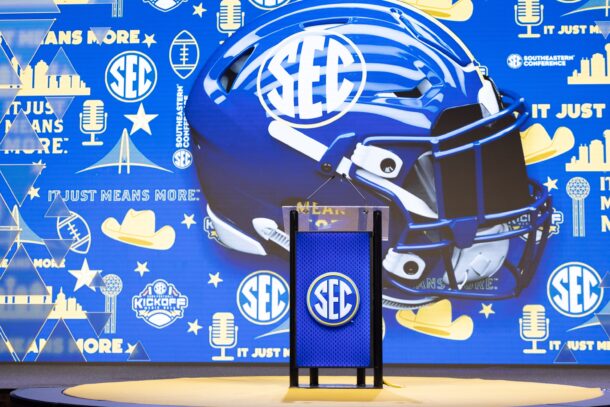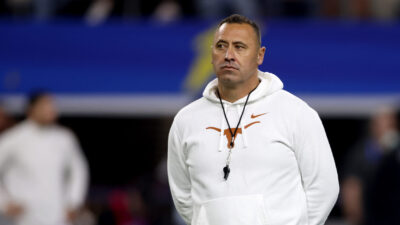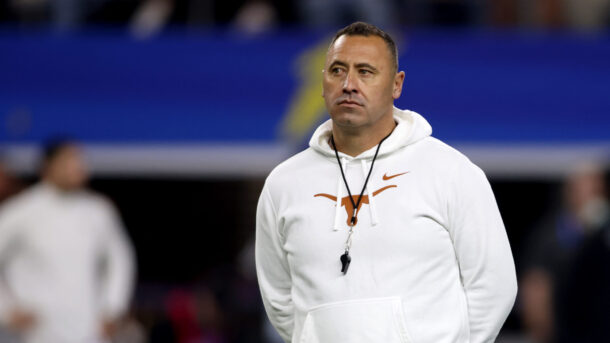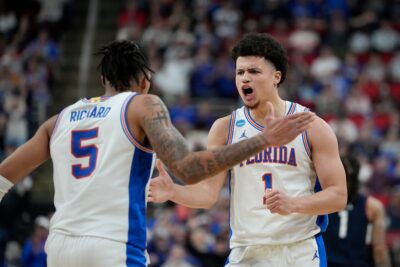Ad Disclosure
NCAA board reportedly approves $2.8 billion settlement funding plan in antitrust lawsuit
The NCAA Board of Directors this week approved a recommended funding plan to finance a $2.8 billion settlement in ongoing antitrust litigation that would see NCAA revenue distributions to conferences cut by roughly $1.65 billion over a 10-year period, according to Yahoo Sports’ Ross Dellenger.
Pushback from non-FBS leagues garnered steam last week, and Dellenger reported the vote on Tuesday was not unanimous.
Presidents and chancellors in the Big 12 voted unanimously on Tuesday to authorize the settlement terms, per multiple reports. They’re the first of the 6 named parties in the case (the NCAA, the Power 5 leagues) to vote on the settlement. The remaining power conferences are expected to do the same in the coming days.
Later this week, the NCAA Board of Governors is expected to meet and give final authorization on the settlement terms, per Dellenger.
The settlement comes in response to the landmark House v. NCAA lawsuit, which seeks back pay for Division I athletes who were barred from monetizing their name, image, and likeness (NIL) prior to the NCAA’s rule change in 2021. The lawsuit was also pursuing a cut of future broadcast revenues for athletes at power-conference schools. A settlement in the House case would also resolve the ongoing Hubbard v. NCAA and Carter v. NCAA cases.
According to Dellenger, the NCAA national office will pay 41% of the settlement (roughly $1.1 billion) while schools will foot the bill for the remaining 59% (roughly $1.65 billion) in distribution reductions. Power Five conferences will make up 40% of that $1.65 billion.
Per-conference numbers from Dellenger:
Over 10 years, each conference will see NCAA distributions reduced to pay the $2.8B in settlement damages.
A document, obtained by @YahooSports, offers a range for each league's reductions. Big Ten leads all at ~$165 million in reductions, followed by ACC ($155M) & SEC ($122M). pic.twitter.com/rq2pj7zIXS
— Ross Dellenger (@RossDellenger) May 21, 2024
Had the NCAA rejected a settlement offer and lost in court, Yahoo Sports reported the bill could exceed $20 billion in damages and would be payable immediately. In that event, the NCAA and leagues would have likely been heading for bankruptcy.
According to ESPN, other details of the settlement include a revenue-sharing model for power conference schools that can opt to distribute up to 22% in revenue from media rights, ticket sales, and sponsorships to student-athletes, as well as an elimination of the existing scholarship caps.
“The most important part about the settlement — and let’s face it, there’s still a lot of work to be done there — is it creates some clarity and some visibility on a whole bunch of issues that have sort of been roiling everybody for a while,” NCAA president Charlie Baker said last week, via The Athletic. “The other thing it does is create predictability and stability for schools. It creates a tremendous opportunity for student-athletes.”
Derek Peterson does a bit of everything, not unlike Taysom Hill. He has covered Oklahoma, Nebraska, the Pac-12, and now delivers CFB-wide content.




